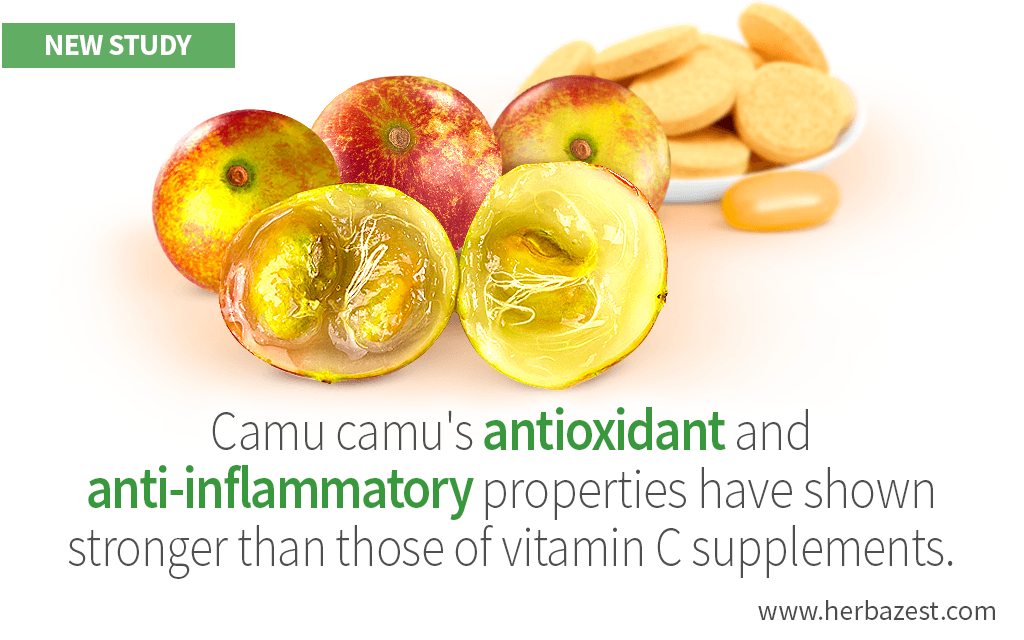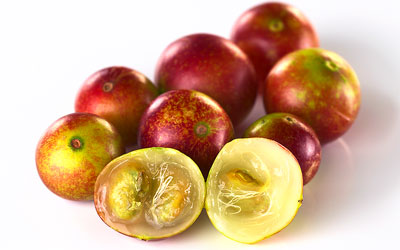While vitamin C is commonly associated with its effects on immunity, research has shown it may also exert protective effects on the heart, potentially including preventing atherosclerosis.1
Camu camu has made a name for itself as the richest known source of vitamin C. However, the scope of its benefits on human health has not been extensively researched yet.
The aim of this trial was to evaluate the antioxidant and anti-inflammatory effects of camu camu in comparison to those of vitamin C tablets.
The Study
Participants of a Japanese clinical trial were 20 smoking males with accelerated oxidative stress states. For one week, half of them consumed 70 mL of 100% camu camu juice (containing 1050 mg of vitamin C), while the other half took 1050 mg vitamin C tablets.
Various oxidative stress and inflammatory markers were measured at the start of the study, after seven days, and after one month post-termination.
The results of this trial were published in the Journal of Cardiology.
The Results
On average, participants in both groups smoked 22 cigarettes per day.
Regarding oxidative stress markers, the camu camu group showed a significant decrease of the levels of urinary 8-hydroxy-deoxyguanosine and total reactive oxygen species in comparison to the vitamin C group.
In terms of inflammatory markers, the camu camu group also showed a considerate reduction of serum levels of high sensitivity C reactive protein as well as interleukin (IL)-6 and IL-8
What Does this Mean?
The results of this clinical trial demonstrate that camu camu's antioxidant and anti-inflammatory properties surpass those of vitamin C tablets.
Since both groups consumed the same amounts of vitamin C, and significant changes were only seen in the camu camu group, researchers suggest that camu camu may contain substances other than vitamin C that are behind such powerful properties.
Further research is needed to evaluate how camu camu's medicinal properties could be used for the prevention and management of various health conditions, such as atherosclerosis.
Other herbs that are rich sources of vitamin C are bell peppers, kiwi, papaya, and kale.
Sources
- Journal of Cardiology, Tropical fruit camu-camu (Myrciaria dubia) has anti-oxidative and anti-inflammatory properties, 2008
Footnotes:
- Journal of Alternative and Complementary Medicine. (2015). Antioxidant and Associated Capabilities of Camu Camu (Myrciaria dubia): Systematic Review. Retrieved December 10, 2021 from https://www.ncbi.nlm.nih.gov/pmc/articles/PMC4296744/







